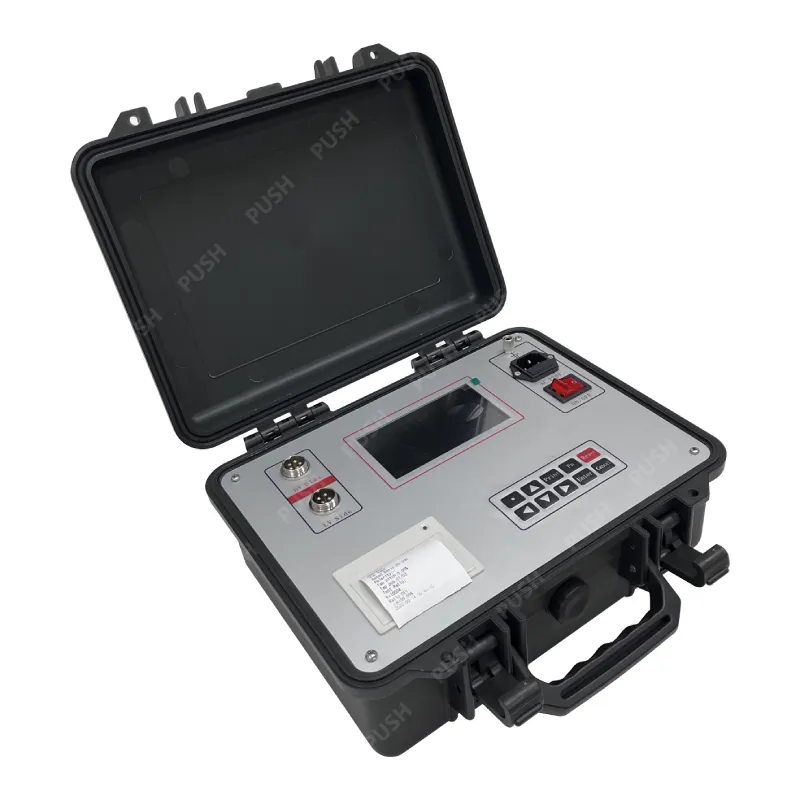 English
English


Closed Cup Flash Point Measurement Equipment for Safety and Compliance Testing
Understanding Closed Cup Flash Point Testers A Crucial Tool for Safety and Compliance
In the world of chemical testing, the determination of the flash point is vital for assessing the flammability of liquids. Among the various methodologies used to measure flash points, the closed cup flash point tester stands out as one of the most reliable and widely employed methods. This article will delve into the significance of closed cup flash point testers, their operational mechanism, and their importance in ensuring safety and regulatory compliance in various industries.
The Basics of Flash Point
The flash point of a liquid is defined as the lowest temperature at which it can vaporize to form an ignitable mixture in the air. It serves as a crucial indicator of a substance's flammability. Materials with low flash points are considered hazardous and pose a significant risk of fire and explosion under certain conditions. Therefore, understanding and accurately measuring the flash point is essential for safe handling, storage, and transportation of flammable liquids.
Introduction to Closed Cup Flash Point Testers
Closed cup flash point testers are devices designed to determine the flash point of a liquid in a controlled environment. Unlike open cup testers, which expose the liquid to the atmosphere, closed cup testers contain the sample in a sealed environment, minimizing external influences such as temperature and air movement. This setup provides a more accurate representation of a liquid's flammability characteristics.
How Closed Cup Flash Point Testers Work
The operation of a closed cup flash point tester involves several crucial steps. First, a specific volume of the liquid sample is placed in a cup that is sealed with a lid. As the cup is heated, vapors from the liquid accumulate above the sample. A small ignition source is then introduced in the form of an electric spark or flame.
closed cup flash point tester

The key measurement is the temperature at which the ignition occurs, indicating the flash point. This process is typically monitored and recorded by the tester's built-in digital interface, ensuring precise temperature readings. Various standards, such as ASTM D3828 and IP 170, provide guidelines for the methodology, ensuring consistency and reliability across different testing laboratories.
Importance of Closed Cup Flash Point Testing
Closed cup flash point testing holds significant importance across multiple sectors. In the chemical manufacturing industry, it plays a crucial role in product development, ensuring that newly formulated substances meet safety standards before going to market. For logistic companies, understanding the flash points of materials ensures compliance with transportation regulations, minimizing the risks associated with transporting flammable liquids.
Moreover, closed cup flash point testers are also employed in the petroleum industry, where the flash points of fuels and oils need to be accurately assessed for safe usage and handling. Environmental agencies utilize these testers to ensure that industrial operations do not pose a fire hazard to communities and ecosystems.
Safety and Regulatory Compliance
Implementing closed cup flash point testing is not only about ensuring safety but also compliance with governmental regulations. Numerous regulations govern the handling and transport of flammable substances, and flash point testing is often a requirement for compliance. Failing to adhere to these regulations can result in legal repercussions, increased liability, and most importantly, pose a risk to human safety and the environment.
Conclusion
In conclusion, closed cup flash point testers are an essential tool for evaluating the flammability of liquids in a safe and controlled manner. Their reliability and accuracy make them indispensable in a wide range of industries, from chemical manufacturing to transportation and environmental protection. As businesses and regulatory bodies continue to prioritize safety and compliance, the role of closed cup flash point testing will remain critical in safeguarding lives and ensuring responsible management of flammable materials. Understanding this process is not just beneficial for industry practitioners but also crucial for anyone involved in the handling, storage, or transportation of hazardous liquids.
-
Differences between open cup flash point tester and closed cup flash point testerNewsOct.31,2024
-
The Reliable Load Tap ChangerNewsOct.23,2024
-
The Essential Guide to Hipot TestersNewsOct.23,2024
-
The Digital Insulation TesterNewsOct.23,2024
-
The Best Earth Loop Impedance Tester for SaleNewsOct.23,2024
-
Tan Delta Tester--The Essential Tool for Electrical Insulation TestingNewsOct.23,2024





